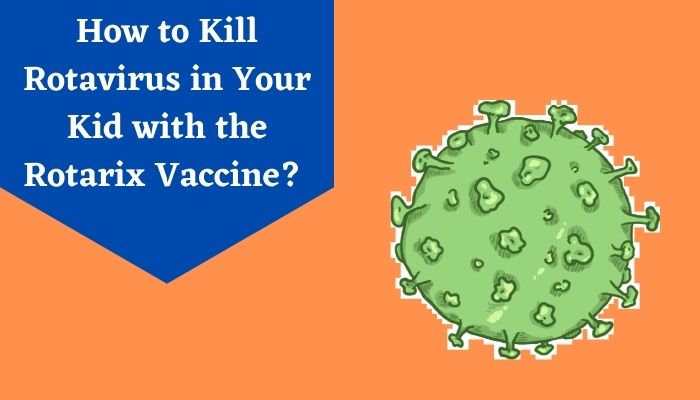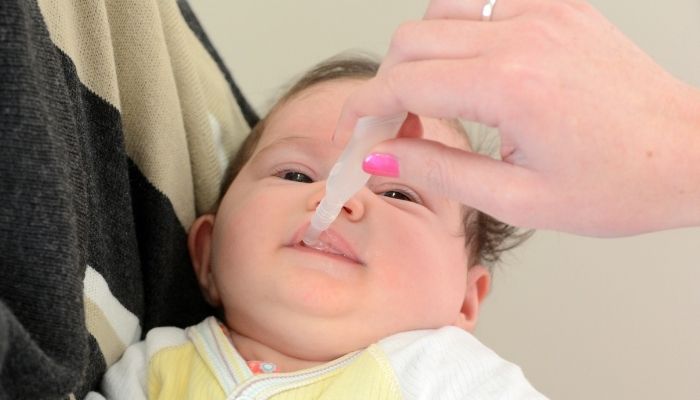Praveer is blessed with a baby boy just a few days before. He is giving all his efforts to become the best father in the world. To strengthen the safety and protection of his baby, Praveer has prepared a list of vaccines that will be given to the baby prince. He was discussing this with his best friend and suddenly, his friend suggested that he must include the rotavirus vaccine in the list which Praveer missed out, unfortunately. Praveer doesn’t have much knowledge regarding this Rotavirus vaccine, so his friend suggested he must go through the internet to accumulate all information regarding rotavirus and its vaccination.
The markets are flooded with two types of rotavirus vaccines and they are RotaTeq(RV5) and Rotarix vaccine (RV1). But before discussing these vaccines, we will discuss what rotavirus is and why it is dangerous for children so that people like Praveer should get adequate information about the virus and vaccines.
What is Rotavirus?
As the name suggests, rotavirus looks like a wheel under a microscope. This lethal virus causes severe acute gastroenteritis with diarrhea and vomiting, mainly in infants and young children. Fortunately, now we have vaccines that will give protection to children against this life-threatening virus.How Deadly is Rotavirus Infection?
Before the invention of the rotavirus vaccine, this perilous virus was responsible for 200,000 emergency room visits, 55,000 hospitalizations, and 60 to 65 deaths each year in the U.S. Globally, this is the leading cause of extreme diarrhea among young children, leading to 2 million hospitalizations and more than 500,000 deaths of children ages 5 and under yearly. Though this virus can affect older children and adults, the illness will not be severe.Rotavirus infection is very much contagious. The viral germ that is present in the stool of an infected person may remain alive for a prolonged period on various contaminated surfaces, including the hands of people. Children can catch it easily by touching something that is tainted and then keeping their hands inside their mouth. Rotavirus infection can spread highly in hospitals and daycare centers and it can grow from one child to another. The daycare or hospital workers may also spread the virus, especially when they are changing their clothes or washing their hands after their duty.
Symptoms of Rotavirus Infection
The symptoms can last up to 8 days. Some prime symptoms are- Fever
- Nausea
- Vomiting
- Abdominal cramp
- Frequent, watery stool or diarrhea
In severe cases, diarrhea can cause dehydration and hospitalizations are required for this dehydration. Deaths related to this disease are also due to this dehydration.
Rotavirus Vaccines
Presently, we have two vaccines [RotaTeq (RV5), and Rotarix vaccine (RV1)] to combat this virus. Both vaccines should be given orally, not as a shot. The numbers of dosages are not the same for the two.- RotaTeq: Three dosages are needed for this vaccine. They should be given at ages 2 months, 4 months, and 6 months. The price of this vaccine is Rs. 1034.
- Rotarix: Rotarix vaccine dose should be given twice (one at 2 months and the next one in 4 months). Rotarix vaccine price is Rs. 1770 per vial.
How Effective Is the Rotavirus Vaccine?
Several medical studies have revealed that the rotavirus vaccine is very effective as it can prevent nearly 74% of rotavirus infections. Most importantly, this vaccine prevents 98% of severe infections and 96% of hospitalizations from rotavirus.Is the Rotavirus Vaccine Safe?
Before the final approval, this vaccine was tested on more than 70,000 children and noticed no severe symptoms among children. An earlier vaccine called RotaShield was banished from the market after being used for two years. Because the results proved that this vaccine can enhance the risk of intussusception (a health condition where the small bowel folds back inside another part of the intestine, thus, it leads to bowel obstruction)The RotaTeq and Rotarix vaccines don’t enhance this risk and are considered safe for immunization to infants.
What are the Side Effects of the Rotavirus Vaccine?
There may be some allergic reactions to any vaccine. The same goes for the rotavirus vaccine. Some allergic reactions could be- Breathing difficulty
- Wheezing
- Hives
- Paleness
- Faster heartbeat
But the severe reactions are almost negligible with the rotavirus vaccine.
Most children didn’t experience any severe problems after the immunization. They slightly experience some milder symptoms after the vaccine. These mild symptoms could be,
- Increased irritability
- Diarrhea
- Vomiting
Are there any Restrictions with the Rotavirus Vaccine?
If a child experiences severe allergic reactions after the first dose of the rotavirus vaccine, he/she should not be given the second or third doses of the vaccine. If your little one is suffering from any moderate or severe illnesses, then wait for some time until the baby has recovered before getting vaccinated. Also, the CDC recommends checking with your doctor whether your baby's immune system has been weakened or not. Things that may inhibit the immune system are,- Exposure to HIV/AIDS or any other immune system-related diseases
- Treatment with prolonged steroids
- Cancer or cancer treatment with X-rays or drugs
Also Read: The Best Prevention Against Pneumonia



